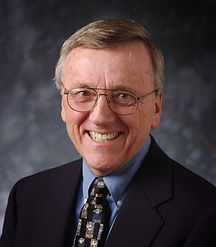Sunday Speaker Series 2026
All events Sundays at 2 p.m.
Free admission, refreshments, onsite parking.

Sunday, Feb, 22, 2 p.m.
Southern Road to Freedom: Florida's Underground Railroad


The nation’s first Underground Railroad was established in Florida in the late 17th century, serving as a beacon of freedom for runaway slaves from the American South. Existing before the better-known Northern Underground Railroad, enslaved Africans gained their freedom by escaping and earning asylum in Spanish Florida. Author and scholar Magdalena Lamarre focuses on Florida’s early history as a Spanish territory, the escape routes used by runaway slaves, and the black communities they established before the abolition of slavery in the United States. Funded through a Florida Talks Grant by Florida Humanities.
Sunday, March 22, 2 p.m.
Florida Noir: Murder. Mystery, and Mayhem in the Crime Fiction of the Sunshine State
Maurice%20O'Sullivan%20(2)_edited_ed.jpg)

Florida Noir traces the rise of crime fiction in the Sunshine State, beginning in the late 19th century with a remarkably successful self-published Anglo-American novelist. As American writers began re-inventing the detective stories made possible by Edgar Allen Poe and Arthur Conan Doyle, Florida writers began exploring the genre’s possibilities. Prof. Maurice O’Sullivan (Rollins College) explores the journey of Florida’s crime fiction and how the state’s unique environment and characters influence modern day mysteries both on the page and screen. Funded through a Florida Talks Grant by Florida Humanities.
